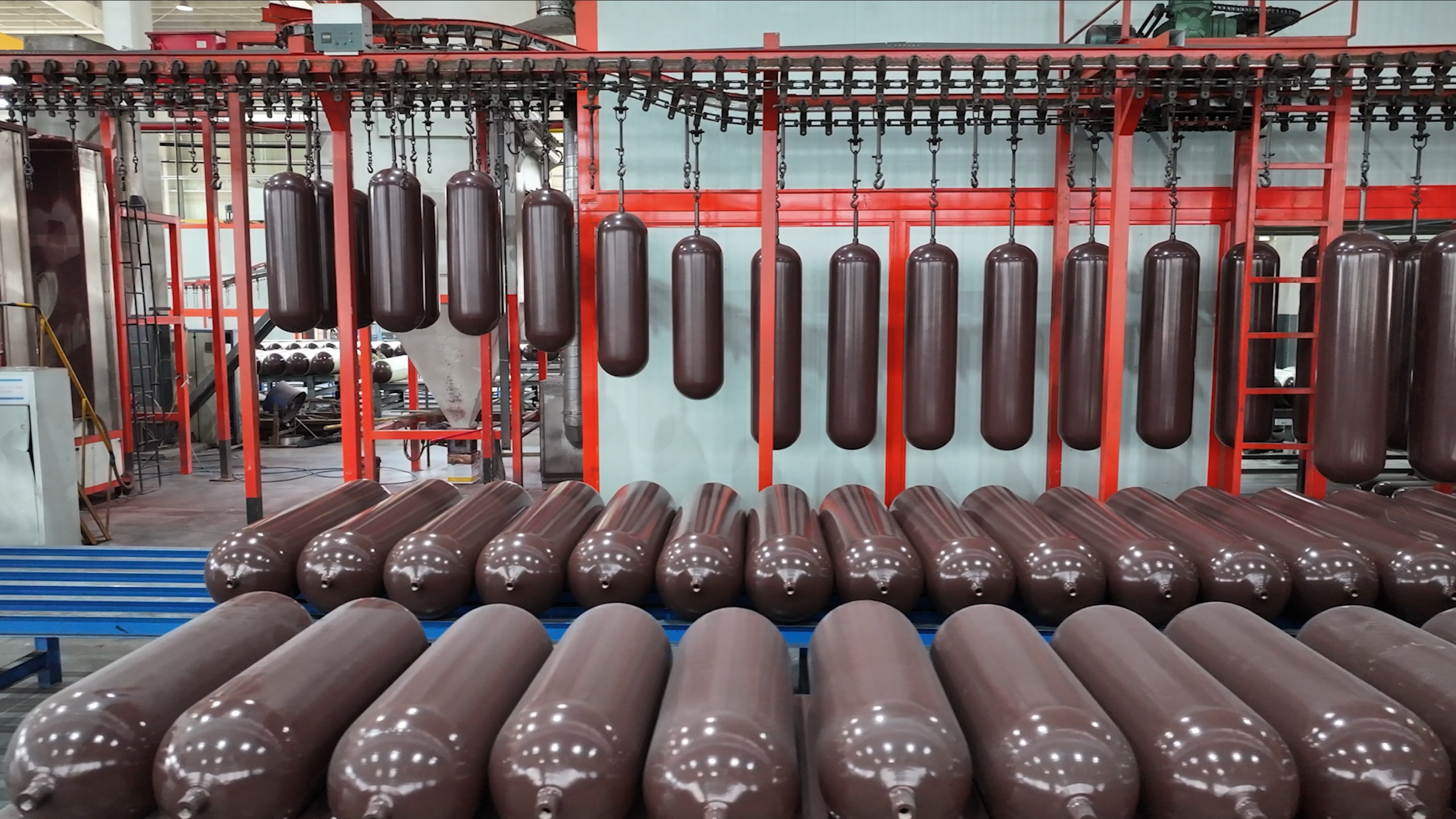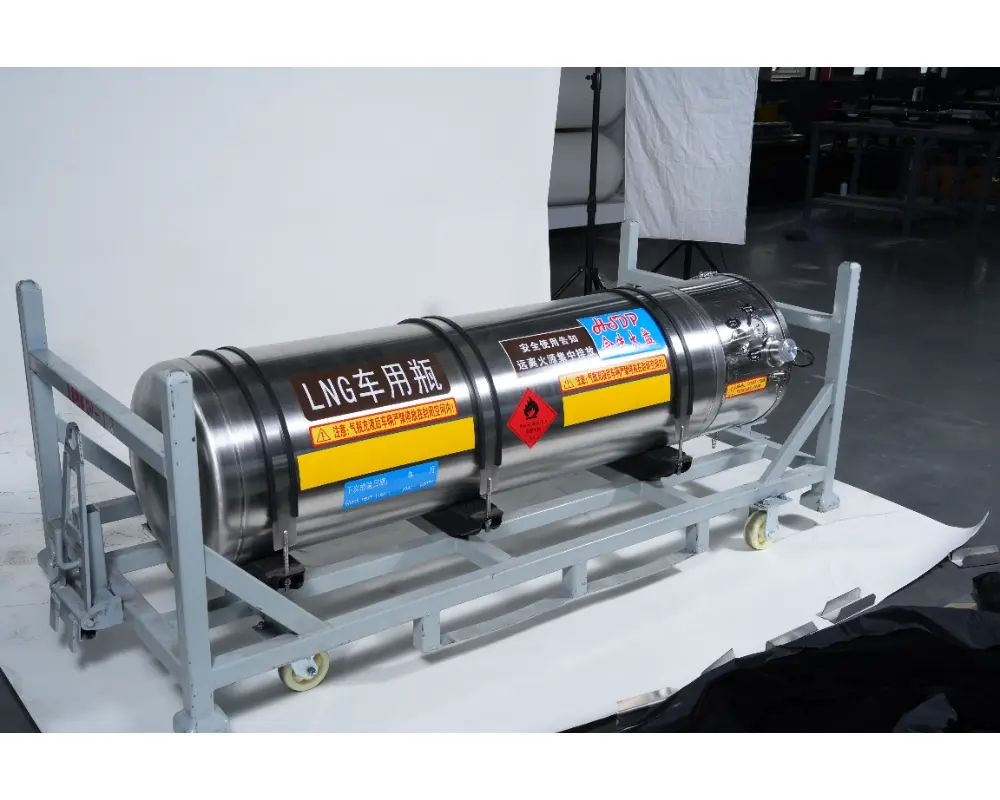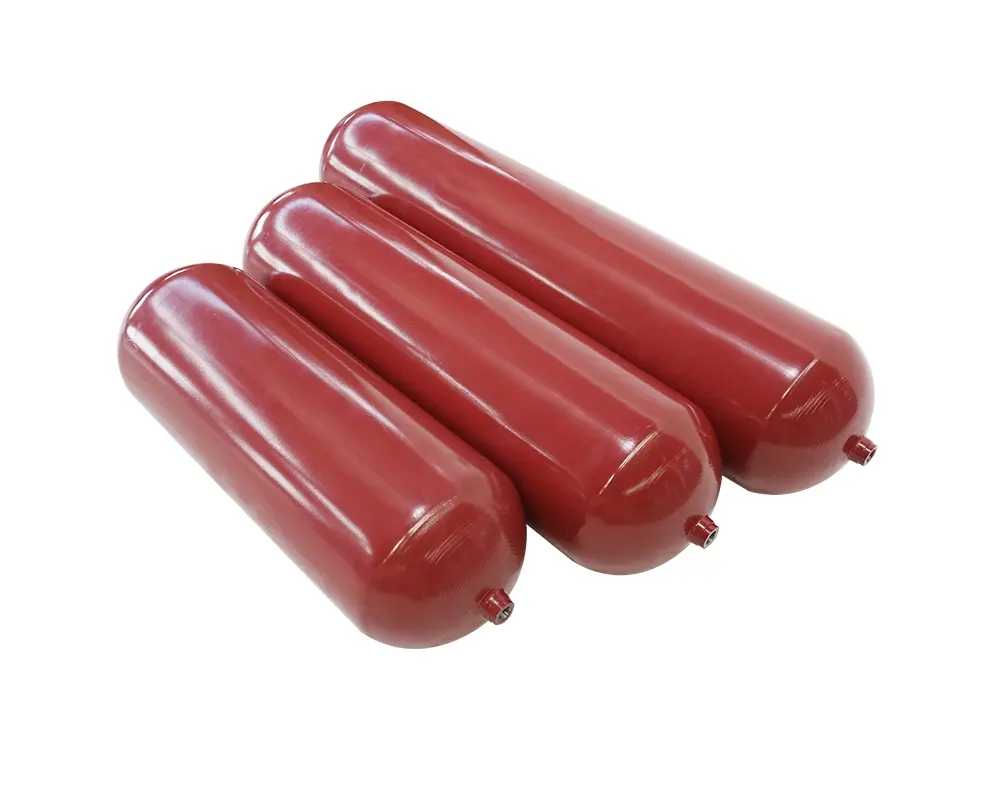¿Qué tipo de cilindro de GNC es mejor para su vehículo?
Hora de lanzamiento: 27/05/2025
Con la creciente conciencia sobre la protección del medio ambiente y la transformación de las estructuras energéticas, cada vez más vehículos optan por el gas natural comprimido (GNC) como combustible alternativo. Los cilindros de GNC, como componentes clave para el almacenamiento y transporte de gas natural comprimido, inciden directamente en la eficiencia de combustible, la seguridad y el ahorro de combustible del vehículo. Los diferentes tipos de cilindros se adaptan a las distintas necesidades del vehículo, y comprender las características y los criterios de selección es crucial para garantizar una modificación exitosa.
Clasificación básica de los cilindros de GNC
Los cilindros de GNC se clasifican principalmente en las siguientes categorías según su forma, material y capacidad:
Clasificación por forma:
Cilindros cilíndricos de GNC: Son el tipo más común y se utilizan ampliamente en diversos vehículos. Suelen instalarse en el maletero o en la parte inferior del vehículo. Los cilindros cilíndricos tienen mayor capacidad de almacenamiento de gas, lo que los hace ideales para vehículos con mayor autonomía, como sedanes medianos y vehículos comerciales.
Cilindros ovalados de GNC: En comparación con los cilindros cilíndricos, los ovalados optimizan el espacio. Son ideales para vehículos con requisitos de espacio estrictos, como sedanes pequeños o autobuses de diseño especial. Su forma ovalada se adapta mejor a las curvas del vehículo, evitando el desperdicio de espacio.
Cilindros de GNC en forma de gota de agua: Comunes en los diseños de vehículos modernos, estos cilindros se utilizan cuando el ahorro de espacio es crucial. Generalmente se montan en la parte inferior del vehículo, ahorrando espacio interior y bajando el centro de gravedad, lo que mejora la estabilidad.
Clasificación por material:
Cilindros de acero para GNCLos cilindros de acero fueron los más antiguos y ofrecen gran resistencia a la presión y durabilidad. Sin embargo, su mayor peso puede afectar el rendimiento del vehículo y el consumo de combustible. Son adecuados para vehículos que requieren alta resistencia y mayor capacidad.
Cilindros de GNC de material compuestoCon los avances tecnológicos, los cilindros de material compuesto se han convertido en la opción más común. Son más ligeros y duraderos que los de acero, lo que reduce eficazmente el peso del vehículo, mejora el consumo de combustible y ofrece mayor resistencia a la corrosión. Si bien los cilindros de material compuesto son más caros, generalmente se consideran una opción más económica a largo plazo debido a su menor peso y mayor vida útil.
Clasificación por capacidad:
Cilindros de GNC de pequeña capacidad: Ideales para trayectos cortos o vehículos con menor consumo de combustible. Estos cilindros suelen tener una capacidad de 10 a 12 kg, lo que satisface las necesidades de uso diario.
Cilindros de GNC de gran capacidad: Ideales para transporte de larga distancia o vehículos que requieren una mayor reserva de combustible. Estos cilindros suelen tener una capacidad de 15 a 20 kg, lo que proporciona una mayor autonomía y son ideales para vehículos comerciales, camiones y otros vehículos de mayor tamaño.
¿Cómo elegir el cilindro de GNC más adecuado?
A la hora de seleccionar el cilindro de GNC más adecuado se deben tener en cuenta los siguientes factores:

Tipo de vehículo y necesidades:
Sedán pequeños:Elija un cilindro cilíndrico u ovalado pequeño para equilibrar las necesidades de combustible y la utilización del espacio.
Vehículos comerciales o de larga distancia:Para los vehículos que requieren una mayor autonomía, un cilindro grande cilíndrico o en forma de gota de agua es más apropiado para satisfacer las necesidades de suministro de combustible extendido.
Peso del cilindro y rendimiento del vehículo:Los cilindros de material compuesto, aunque más caros, son más ligeros y pueden mejorar la eficiencia general del combustible y la aceleración. Si el vehículo exige un alto rendimiento, se recomienda elegir cilindros de material compuesto.
Disposición del espacio del vehículo:Las diferentes formas de cilindros se adaptan a diferentes distribuciones de espacio. Los cilindros cilíndricos son ideales para chasis de vehículos tradicionales o posiciones de maletero, mientras que los cilindros ovalados y con forma de gota de agua son más adecuados para vehículos con espacio limitado o requisitos de diseño especiales.
Requisitos de seguridad y reglamentarios:Independientemente del tipo de cilindro elegido, la seguridad debe ser la máxima prioridad. Los cilindros de GNC deben cumplir con las normas de seguridad nacionales y regionales, como la certificación de recipientes a presión. Al seleccionar un cilindro, asegúrese de que haya sido sometido a una rigurosa inspección de calidad y que pueda soportar un uso prolongado en entornos de alta presión.
Ya sea que priorice el ahorro de combustible, la ligereza del vehículo o el uso eficiente del espacio, la selección del cilindro de GNC puede influir significativamente en su experiencia de conducción diaria. Si aún no está seguro de qué cilindro es el más adecuado para su vehículo, puede consultar con un... Proveedor profesional de cilindros de GNC Como Anhui Dapan. Le brindaremos la mejor solución según el modelo y las necesidades específicas de su vehículo.


